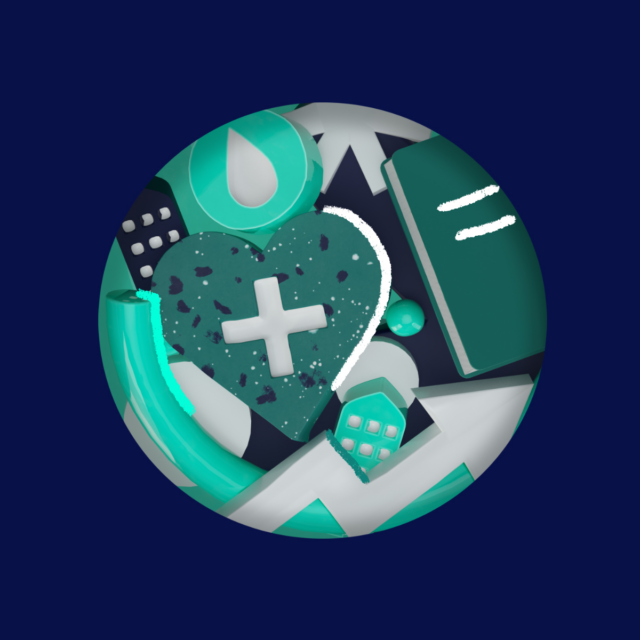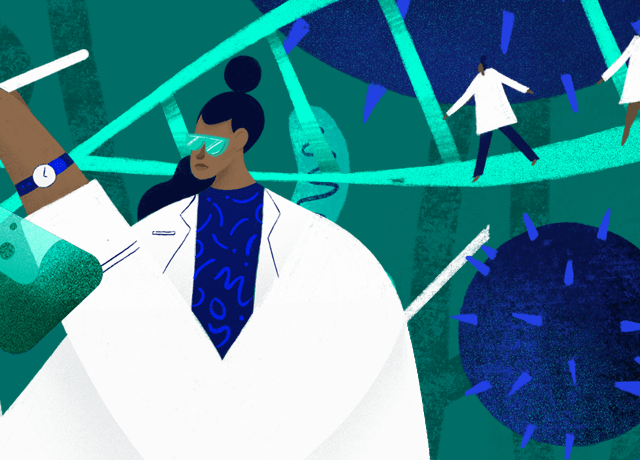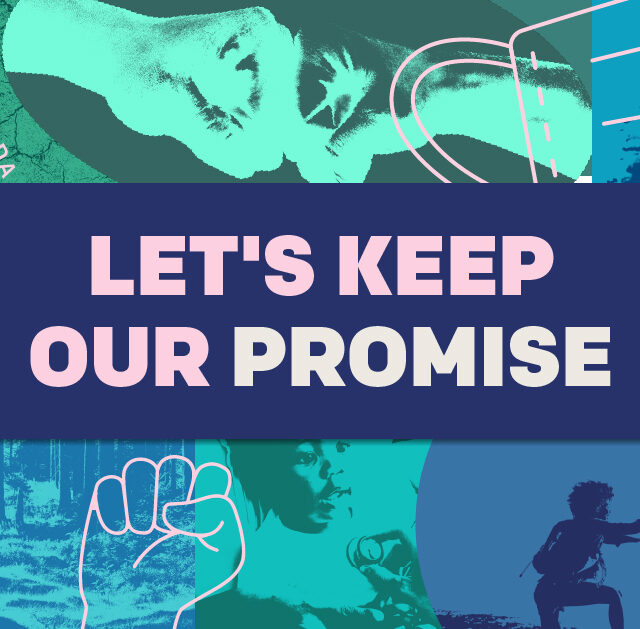Vaccines are undoubtedly one of the most important health tools at our disposal. But many people still have questions about what exactly they are and how they work.
In June, Gavi, the Vaccine Alliance is asking world leaders for at least US$7.4 billion so they can continue their work delivering vaccines to the poorest countries for another five years. With full funding, Gavi could ensure 300 million more children get the vaccines they need to survive and thrive.
That’s why we want to make sure everyone has all the need-to-know facts about this tiny but mighty health intervention.
Why are vaccines important?
Short answer: vaccines save lives.
Long answer: immunisation is considered to be one of the most miraculous advances of modern medicine. Vaccines save up to 3 million lives per year and have contributed to a 65% drop in child mortality since 1990.
On top of the lives saved, vaccination also helps combat poverty and ensure more people get primary healthcare.
What do vaccines prevent?
Vaccines prevent some of the world’s deadliest and infectious diseases including measles, pneumonia, whopping cough, influenza, HPV, and cholera. Recently, Gavi helped ensure that the new Ebola vaccine reached the people most in need. And a number of other promising vaccines are still under development including a universal influenza disease.
To date, smallpox is the only disease to be entirely eradicated by vaccines, though there is hope that polio may soon follow.
What are the economic impacts of vaccines?
Vaccines lead to economic benefits for families and society alike.
Sickness can put a big financial strain on people and their families. Think about it this way: if a child is sick, they can’t go to school and often their parents can’t go to work. This can make short-term expenses pile up – like transportation to the health clinic, medical bills, and loss of income from taking time off of work. Longer-term, the economic impact of illness can include overall loss of productivity from disability or death.
Vaccination helps people avoid these costs through keeping people healthy, and the savings add up. For every US$1 spent on vaccines in Gavi-supported countries, the global economy gets a return of US$54. This resulted in over US$150 million in economic benefits from 2000 to 2017, thanks to Gavi.
What would happen if the world didn’t have vaccines?
Without vaccines, millions of people wouldn’t be alive. Smallpox, one of the most devastating diseases in the world, might still exist. And millions of dollars might not be in the economy.
There’s no telling what effects those losses would have on the world, but it’s safe to say that the world is in a much better place because of vaccines. Regardless of the past, this is an important question for the present. Given what we know about the benefits of vaccines, we have a choice on what will happen based on how we use vaccines today.
At the Gavi replenishment, world leaders will have a say in the future of global health. It will be a critical moment that has the power to shape how this success story continues.
What exactly are vaccines?
A vaccine is a tiny dose of weak or dead germs that stimulate immunity to the diseases they would normally cause. Vaccines are a way of inoculating people, which is intentional exposure to a disease in order to build immunity against that disease.
What do vaccines have in them?
Vaccines work by containing the germs that cause the disease it’s protecting against. These germs are weakened or killed before entering the body, so they don’t lead to infection.
Where did vaccines come from?
The history of vaccination starts long before the first known vaccine. There’s evidence that people were inoculating against smallpox as early as the year 1000.
It wasn’t until 1796 that Edward Jenner produced what is known as the first vaccine. He used cowpox pustules to immunise against smallpox. His invention was followed by 200+ years of research and innovation to create the vaccines we have today, and that work continues to this day.
In 2000, Gavi greatly expanded the reach of vaccines worldwide, playing a key role in the modern history of vaccines. In just two decades, Gavi has helped immunise 760 million children and save over 13 million lives.
How do vaccines work?
All vaccines use the germs of the disease they protect against. The germs in the vaccines mimic a real infection, causing your immune system to develop antibodies against that disease. As a result, you build up immunity to a disease without actually having the disease.
How do vaccinations improve global health?
When someone is vaccinated, the impacts extend far beyond that one person. When more people in a community are immune to a disease, it’s more difficult for the disease to spread from person to person. This is called community immunity, or herd immunity, and it decreases the likelihood of anyone getting that disease. Community immunity is especially important for people who cannot get vaccinated due to pre-existing conditions.
On top of the benefits of immunity, vaccines can help get more people into primary healthcare. Taking a child to get their vaccinations gives families regular contact with healthcare professionals, which can be used to discuss more than just vaccination. Taking a child in for vaccination doesn’t just protect against a specific disease — it gives families an opportunity to improve overall health.
Are vaccines safe?
Yes, vaccines are safe. Because of how many people worldwide rely on vaccination to stay healthy, ensuring the safety of vaccines is a priority among researchers and scientists.
When a vaccine is in development, it typically goes through years of testing to ensure that it is safe and effective. Once approved for use, every batch of vaccinations is also tested and monitored before being sent out. If you’re interested in every stage of testing for vaccines, from development to doctor’s office, you can read more here.
Can vaccines make you sick?
Although vaccines contain germs from diseases, they do not cause sickness. The germs in vaccines are either weak or dead, so there is no chance that the vaccine will cause the disease that the vaccine is meant to protect against.
It is possible to have some side effects from vaccines, like soreness where the injection happened or a slight fever. The side effects depend on the vaccine, but none of them cause sickness.
What can I do to support vaccination?
Now that you know all about vaccines, are you ready to make sure another 300 million children are able to access them? We’re calling on world leaders to support Gavi and allow the organisation to continue its critical work, and we need your help to make sure they follow through. By signing this petition, you’ll help ensure that vaccines can continue to make an unbelievable impact for the health of people everywhere.



